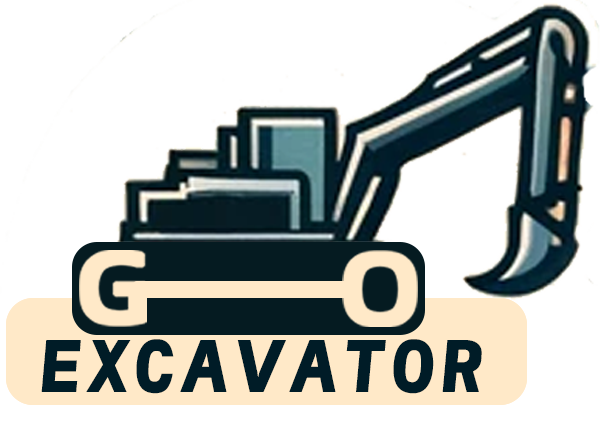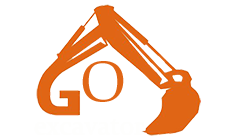
When it comes to investing in an excavator, one of the most critical decisions is whether to purchase a used or new machine. Each option has its advantages and disadvantages, and the right choice depends on various factors, including budget, project requirements, and long-term goals. This guide will help you navigate the decision-making process by comparing the key aspects of used and new excavators.
Introduction to Excavator Options
Understanding Excavator Types
Excavators, also known as diggers, are essential for construction, mining, and various other industries. They come in different sizes and configurations, including mini, standard, and large excavators, each designed for specific tasks.
The Importance of Choosing Wisely
Selecting the right excavator can significantly impact your project’s efficiency, costs, and success. Thus, understanding the pros and cons of used and new machines is crucial.
Advantages of New Excavators
1. Latest Technology and Features
New excavators come equipped with the latest technology and features, such as advanced telematics, improved fuel efficiency, and enhanced safety systems. These innovations can lead to better performance and lower operational costs.
2. Manufacturer’s Warranty
One of the significant benefits of purchasing a new excavator is the manufacturer’s warranty, which covers repairs and replacements for a specified period. This can provide peace of mind and reduce unexpected expenses.
3. Customization Options
When buying a new excavator, you can customize it to fit your specific needs. You can choose from various attachments, configurations, and specifications to ensure the machine meets your project requirements.
4. Reliability and Minimal Downtime
New excavators are less likely to experience mechanical issues and breakdowns, leading to minimal downtime. This can enhance productivity and keep your projects on schedule.

Disadvantages of New Excavators
1. Higher Initial Cost
The most apparent drawback of new excavators is their higher initial cost. The latest models with advanced features can be significantly more expensive than used machines.
2. Depreciation
New excavators depreciate quickly, losing a substantial portion of their value within the first few years. This can be a concern if you plan to resell the machine in the future.
Advantages of Used Excavators
1. Lower Purchase Price
Used excavators are generally much cheaper than new ones, making them an attractive option for those with budget constraints. The lower initial investment can free up capital for other aspects of your business.
2. Slower Depreciation
Used machines have already undergone most of their depreciation, meaning they retain their value better over time. This can be beneficial if you decide to sell the excavator later.
3. Availability
There is often a wide selection of used excavators available, including models that may no longer be in production. This can be advantageous if you are looking for a specific type or model that suits your needs.
Disadvantages of Used Excavators
1. Potential for Higher Maintenance Costs
Used excavators may require more frequent maintenance and repairs, especially if they have high operating hours. These costs can add up over time and affect your overall budget.
2. Limited Warranty and Support
Used machines typically come with limited or no warranty, meaning you may have to cover repair costs out of pocket. Additionally, finding parts for older models can sometimes be challenging.
3. Unknown History
When purchasing a used excavator, it can be difficult to verify its full operational history. There may be hidden issues or past damage that could impact its performance and longevity.
Factors to Consider When Choosing
1. Budget
Your budget is a primary consideration when deciding between a new or used excavator. Calculate not just the initial purchase price but also the long-term costs, including maintenance, repairs, and depreciation.
2. Project Requirements
Consider the specific needs of your projects. If you require advanced features and technology for precision work, a new excavator may be more suitable. For less demanding tasks, a well-maintained used machine might suffice.
3. Usage Frequency
Evaluate how often you will use the excavator. For frequent and intensive use, a new excavator with a warranty might be a better investment. For occasional use, a used machine could offer better value.
4. Resale Value
Think about the resale value of the excavator. If you plan to sell it after a few years, a new machine might offer a higher resale value, whereas a used one might retain more of its value due to slower depreciation.
Making the Decision
Assessing Your Needs
Make a list of your project requirements, budget constraints, and long-term goals. This will help you identify the most critical factors in your decision-making process.
Conducting Research
Research different models, brands, and dealers. Look for reviews, reliability ratings, and user experiences. This information will give you a better understanding of what to expect from new and used excavators.
Consulting Experts
Talk to industry experts, contractors, and other professionals who have experience with both new and used excavators. Their insights can provide valuable perspectives and help you make an informed decision.
Choosing between a used and new excavator is a significant decision that can impact your business’s efficiency and finances. By carefully considering the advantages and disadvantages of each option and evaluating your specific needs, you can make a choice that best suits your situation. Whether you opt for the latest technology and reliability of a new machine or the cost-effectiveness of a used one, the right excavator will be a valuable asset for your projects.
Frequently Asked Questions (FAQs)
Q1: Is it better to buy or lease an excavator?
A1: The decision to buy or lease depends on your specific needs and financial situation. Leasing can be a good option if you need the machine for a short-term project or want to avoid the large upfront cost of purchasing.
Q2: How can I ensure the quality of a used excavator?
A2: To ensure the quality of a used excavator, conduct a thorough inspection, review its maintenance history, and, if possible, have a trusted mechanic assess the machine. Purchasing from reputable dealers can also increase the chances of getting a reliable machine.
Q3: What are the maintenance costs associated with new and used excavators?
A3: New excavators generally have lower maintenance costs initially due to their condition and warranty coverage. Used excavators may have higher maintenance costs, especially if they have high operating hours or are older models.
Q4: Can I finance the purchase of an excavator?
A4: Yes, many dealers and financial institutions offer financing options for both new and used excavators. Financing can help spread the cost over time, making it more manageable.
Q5: What are the most important features to look for in an excavator?
A5: Key features to look for include engine power, hydraulic performance, operating weight, and the availability of attachments. Additionally, consider the machine’s fuel efficiency, ease of use, and the reputation of the manufacturer.
A Comprehensive Guide to Buying a Excavator Second Hand
Purchasing a second-hand excavator can be a cost-effective solution for your construction or landscaping needs. However, buying used machinery comes with its own set of challenges and considerations. This comprehensive guide will walk you through [...]
Comprehensive Guide to Hyundai Mini Excavators: Features and Prices
Mini excavators have become indispensable tools in the construction and landscaping industries. Hyundai Construction Equipment, a global leader in heavy machinery, offers a range of mini excavators known for their reliability, efficiency, and advanced features. [...]
How to Extend the Service Life of Excavator Parts
Excavators are indispensable machines in the construction and mining industries. They perform heavy-duty tasks that demand robust components and meticulous maintenance. Extending the service life of excavator parts not only reduces operational costs but enhances [...]
Kymron Excavators: Innovative, Sustainable Construction Machinery
In the dynamic world of construction and heavy machinery, Kymron has emerged as a game-changer. Specializing in advanced excavator technology, Kymron is redefining industry standards with its commitment to innovation, efficiency, and sustainability. Company Overview [...]
Bulldozer vs. Wheeled Excavator: Which Machine is Better for Moving Soil?
Moving soil is a fundamental task in construction, landscaping, and earthmoving projects. Choosing the right machinery for the job can significantly impact efficiency, cost, and project timelines. Two of the most commonly used machines for [...]
Why Are Small Excavators Favored? A Comprehensive Guide
In the world of construction and landscaping, efficiency and versatility are key. Among the myriad of machinery available, small excavators have risen in popularity. But what makes them so favored? Introduction to Small Excavators Small [...]




